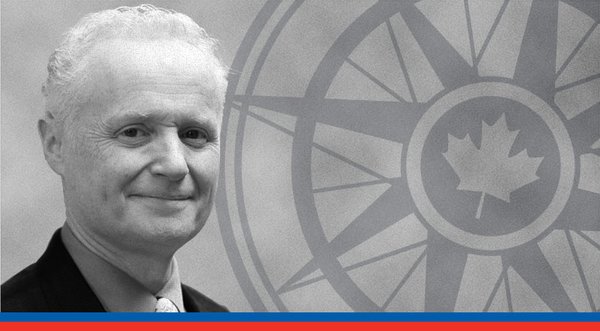One of Canada’s most respected social thinkers and a man who has been a great inspiration to me personally, Tom Courchene of Queen’s University, wrote an op-ed in The Globe responding to my own. Mine was a summary of some of the arguments in Fearful Symmetry, focused in particular on the recent news that Ottawa was about to expand the number of seats in the Commons to reflect the growth of BC, Alberta and Ontario. Quebec and all the other provinces would gain no seats, implying a relative loss of not only population but political influence as well. Professor Courchene’s article was clearly intended to be a rebuttal to my piece, but like Andrew Coyne and several other readers who wrote to me, I found its arguments to be a bit mystifying.
OK, he spends the first third of the article agreeing with me. But the place where apparently he and I diverge is when I wrote that the shifting distribution of seats was a symptom of a larger malaise, especially for Quebec, which I described as “a society that cannot pay its own way or reproduce itself, that is highly dependent on transfers from the rest of the country, and that is losing its political influence.†Professor Courchene felt called upon to defend Quebec’s honour.
In so doing he said, for example, that while obviously Quebec’s weight would fall in the Commons, it would remain the same in the Senate. True but, as the French say, quel rapport? Is Professor Courchene seriously suggesting that the ultimate backwater in Canadian political institutions, our unelected Senate, will suddenly become the new avenue through which Quebec will exercise the kind of powerful political influence it has enjoyed in recent decades? If that were the case, I think you’d find Senate reform, giving Quebec the same number of seats as all other provinces, would rapidly move up the public agenda. He argues that falling seats in the Commons for Quebec will mean an abandonment by Quebec voters of the Bloc and a return to the fold of one or more federalist parties. But part of the argument I made in my op-ed is that as the Commons expands, and Quebec’s representation remains static, their ability to cause minority governments (as is the case today thanks to the Bloc) or to bestow majorities (as in much of the previous century), will be heavily diluted. It won’t disappear. It will just become less and less decisive. It is just arithmetic. Michael Bliss makes a similar point about Conservative Party electoral fortunes in today’s Globe.
But what really mystified me, coming from the father of the argument about “transfer dependency” which Professor Courchene helped to popularize in Canada in the 70s and 80s, was his attempt to make it appear that Quebec was the source of many highly desirable changes in Canada, most of which were only made possible by big, and badly designed, transfer programmes. Now far be it from me to deny that Quebec has been a valued and welcome member of Confederation, and I agree with him that the legal and linguistic diversity that Canada enjoys is in large part due to our perfectly legitimate efforts to accommodate Quebec and French-speakers. But as Professor Courchene quite well knows, because he has read my book and I have discussed it with him, many of the changes he singles out as gifts Quebec has bestowed on Canada, I argue have been the result of a sordid bidding war between Ottawa and Quebec City to keep Quebeckers from voting to leave Canada. Moreover this bidding war, by putting huge piles of cash on the table for Quebeckers to quarrel over, has created a society deeply mired in rent-seeking, or what I call PUPPETRY (people using political power to enrich themselves by plundering you).
The whole reason that Quebec is losing political and demographic weight is because its vast expansion of the state and its shift from being a society concerned with productive effort to one concerned with PUPPETRY have caused the emergence of that “society that cannot pay its own way or reproduce itself, that is highly dependent on transfers from the rest of the country, and that is losing its political influence.â€
Among the many social dysfunctions that have emerged in Quebec since the Quiet Revolution, let’s list a few: low employment rates, low productivity per capita, low investment rates, low in-migration, low fertility, low family formation rates, high welfare dependency, high out-migration, high taxes, high debt, high divorce, suicide and abortion rates. Now why ever would you describe that as “a society that cannot pay its own way or reproduce itself, that is highly dependent on transfers from the rest of the country, and that is losing its political influenceâ€?
Yes, as Professor Courchene points out, Quebec has been an innovator in social policy, although my gloss on that is that the innovation helps to create dependence on the state and is part of the problem. He cites cheap daycare as an example. On the other hand, that is a policy so far looked on in much of the rest of the country with scepticism, is very expensive and by no means an unalloyed blessing to parents and children, and is only possible in Quebec because of large transfers from other provinces who do not offer such services, when the transfers are supposed to guarantee that less well-off provinces can offer reasonably comparable services to richer ones. I think our history of transfers has been an unhappy one that has fuelled Quebec’s economic and population weakness and Professor Courchene’s defence of them makes him, in my view, a defender of a system that has done Quebec little good and much harm.
He attributes our “multiculturalism” to Quebec. Again, I disagree. In fact multiculturalism was opposed by Quebec as a dilution of their preference for a narrower and old-fashioned two-nation Canada, and the debate over the extent to which cultural minorities should be accommodated has been loudest and most ill-tempered in Quebec, leaving aside the extent to which Quebec has used its provincial powers under the constitution to marginalize the English-speaking population, a stain on Canada’s record of linguistic tolerance and diversity which I document in Fearful Symmetry.
And that brings us to Professor Courchene’s last point: Quebec has been the spear-tip of a movement in favour of “collective rights” that helps to distinguish us from the United States. Well, as a Laurier liberal, a believer in individual liberty, responsibility and accountability under the rule of law, I personally think that “collective rights” are harmful to democracy, are an unwelcome departure from our legal, moral and political tradition, and are unnecessary to distinguish us from the United States. Canadians were different from Americans before e.g. Bill 101 allowed the French-speaking majority in Quebec to oppress the French-speaking minority that wanted to send their kids to English-language schools (an example of how collective rights are really code for majorities oppressing minorities). Surely we only need to distinguish ourselves from American on points where they are wrong and we can do better. Anything else is difference for its own sake, an unworthy prize and one for which we should be unwilling to sacrifice our freedoms and moral tradition.


